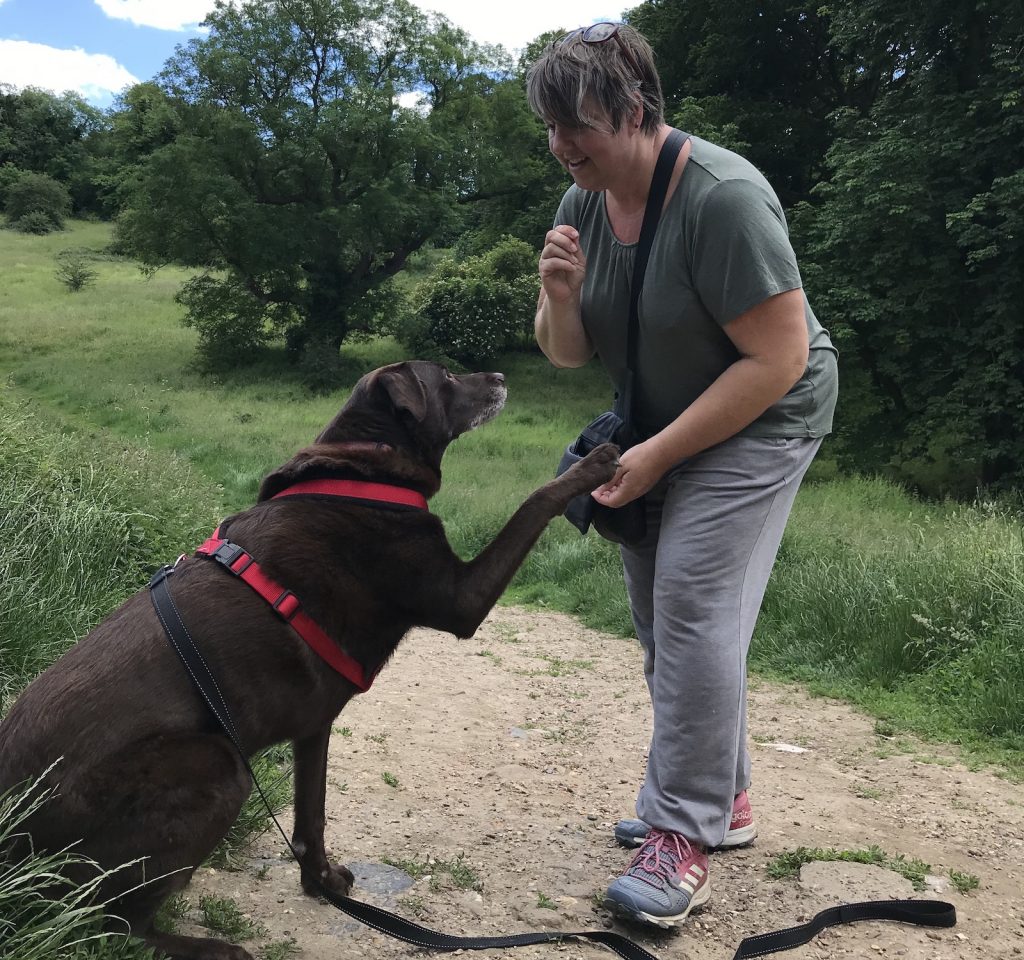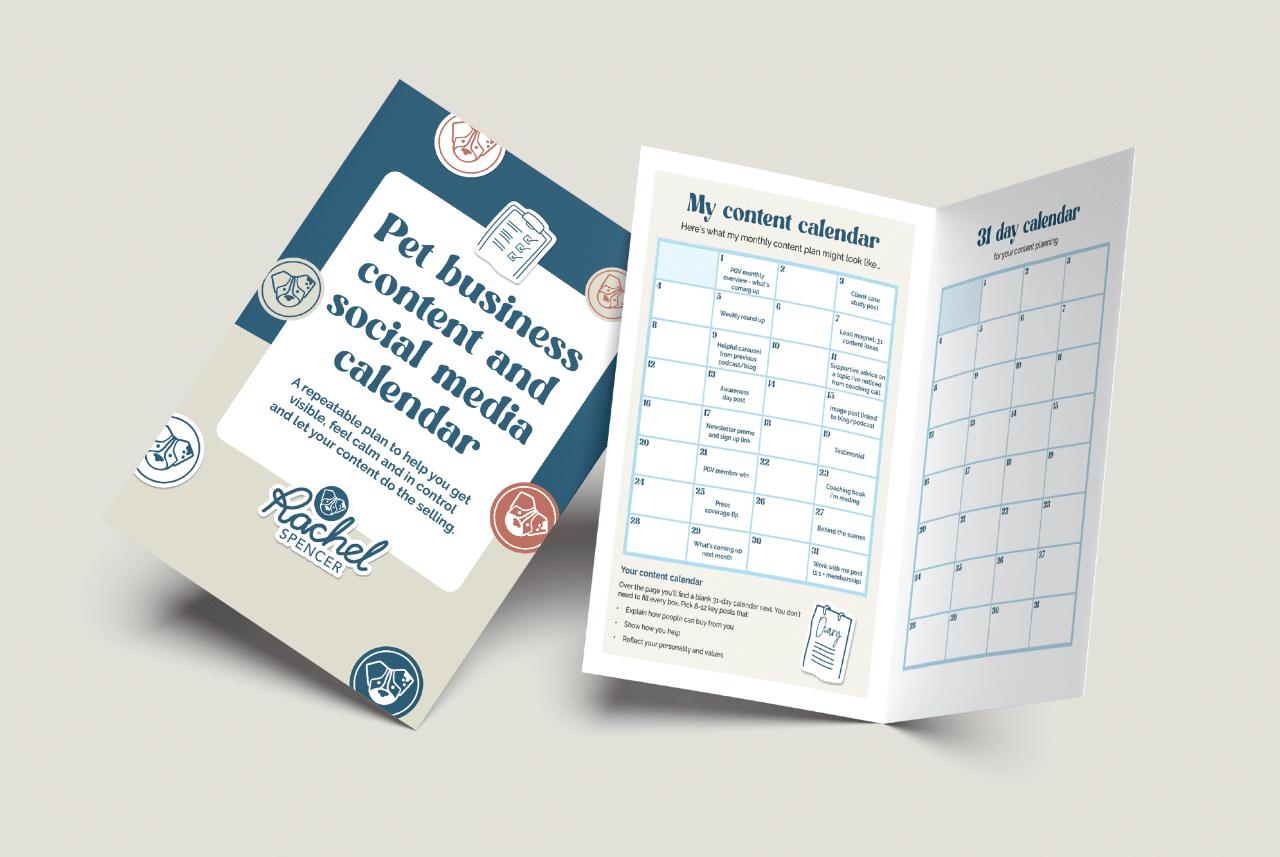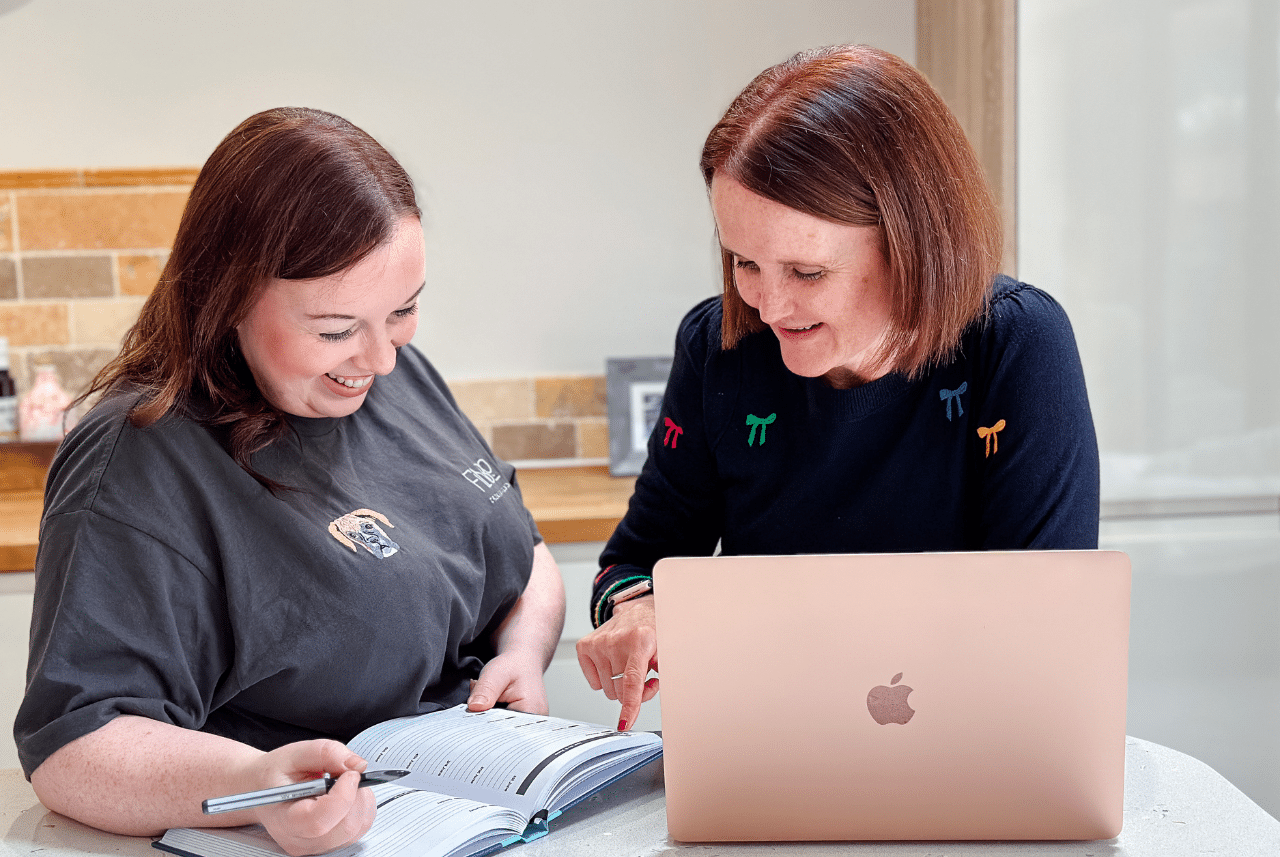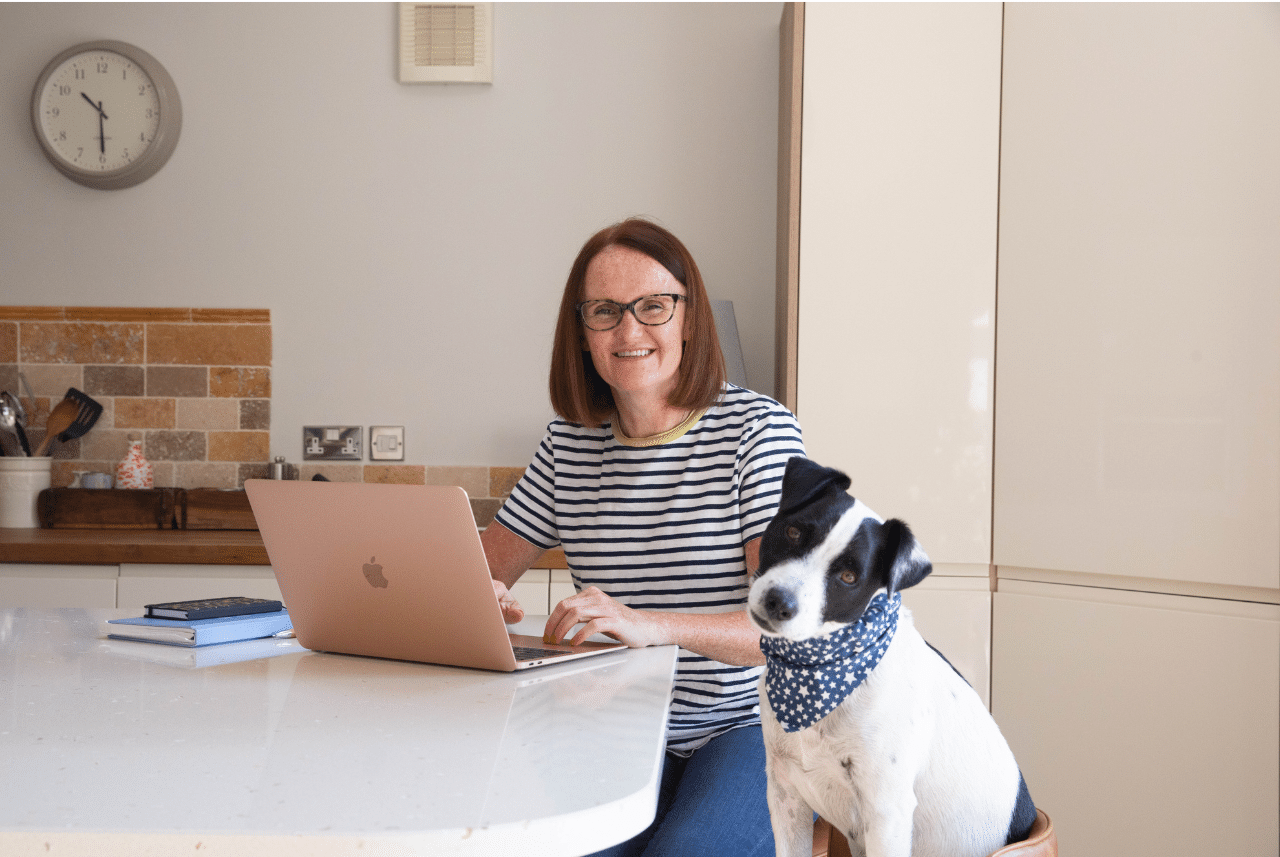Does your pet business feel like a side hustle?
In my Facebook group, I’ve had a number of people post recently saying they haven’t felt their business is taken seriously.
Feeling like what you do is more of a ‘hobby’ or ‘little job’ can be crushing. It eats into your self esteem and chips away at your confidence.
So how do you overcome it and tell people loud and clear that you mean business?
I spoke to career coach and therapist Michelle Kuklinski who now runs a dog walking business herself to find out.
Michelle lives with her daughter in Hemel Hempstead with Chocolate Labrador Border Collie cross Lilly, nine, and shares her experience both as a therapist and pet business owner.

Why do you think people see pet businesses as a ‘side hustle?’
I think it’s a lot to do with gender, sadly. Particularly when women are working outside of the workplace which has a more formal structure, people see what they do as something to fill in time in between kids.
Of course not all women have families but there are still a lot of assumptions that go on in society that you’re the primary carer, so therefore this is just something you’re fitting around family routines.
Or people might think you have your pet business because you’re bored, or you’ve been made redundant, or you’re out of the workplace, so there’s a tendency to view it as a hobby rather than a serious business venture.
Often they might have degrees, have been in well-paid corporate jobs, and for whatever reason have decided not to go back to it and thought, ‘What can I do instead?’
They’ve chosen things like dog walking and they can sometimes be told by friends and even their partners that they’re demeaning themselves which is awful. There are some jobs such as childcare and pet care that people see in this way.
I have people in my community who have left careers that are seen as ‘high flying’, so lawyers, accountants, teachers, fashion designers, to work with animals, and sometimes I think there’s a bit of jealously going on too. Would you agree?
Yes because these people have made a decision to make a change in their life, in their career direction, and that’s a brave thing to do.
People might try to be dismissive. I’ve had people say to me to ‘get a proper job,’ but really it’s more about them than me. And there is that envy because they’re stuck in the rat race and would like to get out but they’re scared.
But the crazy thing is that people are trusting them with something really precious?
Yes, it’s like saying, ‘I’m trusting you to look after a very valued possession but I don’t value you or the service you provide properly.’
For example, people seem to think it’s okay to delay paying you because they assume it’s just ‘pin’ money.
But as a wise childminder friend once said, “Well you don’t go in Sainsbury’s and say, ‘I haven’t got the purse, I’ll pay you next week,’ do you?”
It’s astonishing that people would want to upset or treat in a disrespectful way the person that is looking after their most precious commodity.
What’s the emotional impact of this?
It can affect your self esteem and feelings of worth. One of the things that inevitably happens when you’re working with pets is that you want the pet to like you, and that can sometimes pass down to the owner too.
You want the owner to like you, and for their approval, and when you don’t get that, it hurts. It affects your confidence. At that point you’re more likely to say yes to work that you might not want to do.
Or you have people who take advantage, who mess you around and don’t pay on time, and you might think, ‘I really like this person and I want to help their dog,’ but this is to your detriment.
You might find the way they treat you has a negative impact on your emotional wellbeing and it can reach a point where it’s actually costing you to look after their dog. Sometimes you just need to do a cold, hard reality check.
So how can you overcome your pet business being seen as a side hustle?
Have strict boundaries in place from the start. In my terms and conditions, for example, I choose to invoice in arrears so therefore expect payment on receipt.
It’s either a week or a month, depending on what the client needs. But if they’re more than 48 hours late, then I reserve the right to charge a late payment fee.
Consider having a mentor look at your business from the outside. Work out what you need to live on and how many clients you need to reach that and stick to your prices.
People baulking at prices, particularly with artists and makers in my group, is another thing people find frustrating.
Yes, people want bespoke but don’t want to pay. If you went into John Lewis and bought a generic dog print you’d expect to pay £100. You wouldn’t flinch.
Yet someone who creates a one off painting from scratch can find friends and family pull a face at their prices and have no idea of the effort and love that goes into it.
Learn to value your product or service. There will always be people out there that don’t see the value. And they’re not your clients.
Think of the people that want to buy cheap chicken from a horrendous battery farm for peanuts compared to people who cares about the welfare of the chicken and opt for free range, organic.
Aim for the free range chicken person.
Thanks Michelle I think that sums it up perfectly! What are your top five tips?
Have clear boundaries.
Sit down and work out what your pain points are. It might be people texting late at night or cancelling.
Work out how you can put boundaries in place, whether it’s in your terms and conditions, a verbal one, whatever works for your business.
Have open communication.
Always keep the lines of communication open, because sometimes we think our clients should know what we’re thinking. Treat them as you want to be treated.
Don’t try to be their best friend.
Go above and beyond to make friends with the pet, but not the owner. Keep that professional.
Think like Tesco.
This applies to late payments and not letting people mess you around with money. Tesco would not let you take your food and say, ‘It’s fine to pay me in two weeks.’ Use an invoicing tool like QuickBooks as it gives that look of professionalism. It’s around £10 a month, and saves you time, stress and means less awkward dialogue needs to be entered into if there is a late payment as you just press the ‘send reminder’ button!
Find a safe and PRIVATE place to vent.
You might have an accountability buddy, a coach or a group where you go to let off steam. That’s fine and don’t post anything in a public place. It’s better to vent there than to your clients.
Michelle offers 1-1 coaching and online personal development programmes and has worked with many business owners and individuals. Find out more at growwithmk.com




